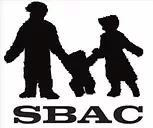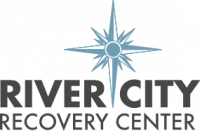Crisis Residential - Turning Point Community
Drug Rehab Center in Sacramento, California
Axis Residential Treatment - West offers a comprehensive, accredited drug and alcohol rehab program that includes detoxification, residential care, intensive outpatient services, dual-diagnosis treatment, aftercare support and holistic therapies such as yoga and mindfulness meditation to assist individuals in addressing the physical, psychological and spiritual aspects of their addiction while promoting healthy lifestyle choices.
About This Sacramento, CA Facility
Crisis Residential - Turning Point Community is an addiction treatment facility located in Sacramento, California. This facility specializes in helping individuals suffering from dual diagnosis, mental health issues, drug addiction, alcoholism, and substance abuse. By offering a range of levels of care, including dual-diagnosis, inpatient, and residential treatment options, Crisis Residential - Turning Point Community provides a comprehensive approach to recovery. They also accept private health insurance, making their services accessible to a wider range of individuals seeking help with their addiction.
At Crisis Residential - Turning Point Community, individuals struggling with addiction and substance abuse can expect to receive personalized and evidence-based treatment to address their specific needs. The facility offers a dual-diagnosis approach, recognizing the importance of treating both the addiction and any underlying mental health conditions simultaneously. This approach helps individuals develop a better understanding of the connection between their mental health and substance abuse, leading to more effective and lasting recovery outcomes.
In addition to their dual-diagnosis treatment, Crisis Residential - Turning Point Community provides inpatient and residential levels of care. These programs offer a safe and supportive environment where individuals can focus on their recovery and receive 24/7 supervision and assistance. The treatment methods employed at this facility include individual counseling, group therapy, family therapy, and holistic approaches such as mindfulness and meditation. By combining various therapeutic modalities, Crisis Residential - Turning Point Community aims to address the physical, emotional, and psychological aspects of addiction, providing individuals with the tools and support they need to achieve and maintain sobriety.
Genders
Ages
Modality
Additional
Conditions and Issues Treated
Substance abuse refers to the intensive and inappropriate use of psychoactive substances. Psychoactive substances are those that affect brain function. These include illegal drugs, alcohol, and even the excessive use of prescription drugs. The overuse of psychoactive substances leads to severe physical or psychological dependence. It also affects the social life and relationships of the affected individual. Substance abuse is treatable.
The duration of treatment at Crisis Residential - Turning Point Community in Sacramento can require weeks or even months depending on the severity of the condition as there is a risk of relapse. Treatment options include medications, counseling sessions, various types of behavioral therapy, and group therapy in different combinations.
Mental illness includes conditions such as anxiety, depression, schizophrenia, bipolar disorder. It can also happen that mental illness causes drug addiction and vice versa. Crisis Residential - Turning Point Community in California knows it is vital to diagnose dual diagnosis or co-occurring disorder.
Levels of Care Offered
This center offers a variety of custom treatment tailored to individual recovery. Currently available are Dual-Diagnosis, Inpatient, Residential, with additional therapies available as listed below.
Inpatient programs are intensive regimes that require individuals suffering from serious addictions to admit themselves into a controlled environment. Inpatient programs in California generally span over 28 days to six months. The first step in an inpatient program is medically assisted detox. Doctors and addiction specialists at Crisis Residential - Turning Point Community monitor the individual’s vital signs as the drugs leave their system. Some inpatient rehab programs also provide counseling for family members to provide encouragement and emotional support. In inpatient programs, patients have access to 24-hour medical supervision.
Residential treatment programs are those that offer housing and meals in addition to substance abuse treatment. Rehab facilities that offer residential treatment allow patients to focus solely on recovery, in an environment totally separate from their lives. Some rehab centers specialize in short-term residential treatment (a few days to a week or two), while others solely provide treatment on a long-term basis (several weeks to months). Some offer both, and tailor treatment to the patient’s individual requirements.
Crisis Residential - Turning Point Community‘s Therapies & Programs
In addiction recovery at Crisis Residential - Turning Point Community, therapy plays a significant role. This helps patients get to the root of their addiction and discover how the problems that contributed to their use can be handled better. Therapy can be performed in a group and one on one settings. The patient interacts with the therapist in a one-on-one atmosphere during individual therapy. This encourages them to reflect on the underlying addiction problems and develop ways to avoid potential future abuse.
Dialectical behavioral therapy (DBT) is a type of Cognitive Behavioral Therapy that focuses on eliminating specific negative thoughts such as suicidal thoughts that can potentially lead to an individual inflicting self-harm. It is useful in the treatment of patients exhibiting uncontrollable emotions, intense mood swings, and borderline personality disorders.
The term “Dialectic” means the integration of opposites. In the substance abuse context, DBT refers to accepting the patient’s addiction and working to change their thoughts and behavior. It improves life skills such as controlling the intense emotions without reacting impulsively, resolving the interpersonal conflicts effectively, and promoting awareness about self and others.
Cognitive Behavioral Therapy (CBT) examines the relationship between a patient’s thoughts, feelings and behaviors. Crisis Residential - Turning Point Community aims to establish a healthy response to thoughts and feelings as an alternative to turning to drugs and alcohol. It also promotes healthy communication between addicts and those around them. It is and effective therapy for people suffering with all types of addictions.
It’s no surprise that diet is a crucial player in one’s well-being. What an individual puts into his or her body becomes the fuel that drives the mental and physical faculties to perform accordingly. Therefore, nutrition therapy, also known as medical nutrition therapy (MNT), guarantees that an individual is providing his or her mind and body with proper nourishment.
The right diet can improve a person’s general outlook, sleep habits, and thought processing skills. MNT also lowers the occurrence of chronic diseases such as adult-onset diabetes. Dieticians at Crisis Residential - Turning Point Community in Sacramento, California believe that nutrition therapy is the key to making significant lifestyle changes, especially when it comes to personal care.Nicotine Replacement Therapy (NRTC) used products like skin patches and gum to deliver nicotine into the bloodstream of people trying to quit smoking. This helps break the habits associated with smoking. The very low doses of nicotine managed by Crisis Residential - Turning Point Community prevent cravings while helping people make a gradual transition to complete smoking cessation.
Patient Experience
Experiential Therapy at Crisis Residential - Turning Point Community
Experential therapy is a unique type of therapy that deals with the subconscious mind. This treatment available at Crisis Residential - Turning Point Community in Sacramento, CA encourages individuals to work out their issues with their inner self through synchronous experiences.
This non-traditional treatment method makes use of the physique and encourages people to take part in various physical and emotional activities, movements, and practices. Some of the most common examples of experiential therapy are equine therapy, music therapy, adventure therapy, and role playing. Through these various methods, an individual is believed to heal from trauma, negative emotions, and hurtful memories faster. Moreover, experiential therapy is known to have enduring results which can be beneficial to sufferers.
Payment Options Accepted
For specific insurance or payment methods please contact us.
Is your insurance accepted?
Ask an expert, call (888) 674-0062
Additional Details
Specifics, location, and helpful extra information.
Sacramento, California 95820 Phone Number(916) 737-9202 Meta DetailsUpdated November 25, 2023
Staff Verified
Patient Reviews
There are no reviews yet. Be the first one to write one.
Sacramento, California Addiction Information
More than 3 million of California's citizens are addicted to illegal drugs. Almost 800,000 people use hard drugs, almost 5 million use marijuana, and another 2.1 million abuse alcohol every year. Other substance abuse issues such as binge drinking and teen drug use are also common. Many illegal drugs such as cocaine, heroin, methamphetamine, and marijuana are smuggled into the state from Mexico.
Heroin is the most commonly abused drug in Sacramento, followed by methamphetamines and prescription opioids. In 2016, there were over 1,000 overdose deaths in Sacramento County. Only about 10% of people who need treatment for drug addiction receive it. Drug abuse and addiction cost Sacramento County over $1 billion each year in lost productivity, healthcare costs, and criminal justice expenses.
Treatment in Nearby Cities
- Lompoc, CA (275.0 mi.)
- Lake Forest, CA (398.5 mi.)
- Rancho Cucamonga, CA (374.6 mi.)
- Morgan Hill, CA (97.4 mi.)
- Scotts Valley, CA (106.6 mi.)
Centers near Crisis Residential - Turning Point Community
The facility name, logo and brand are the property and registered trademarks of Crisis Residential - Turning Point Community, and are being used for identification and informational purposes only. Use of these names, logos and brands shall not imply endorsement. RehabNow.org is not affiliated with or sponsored by Crisis Residential - Turning Point Community.








